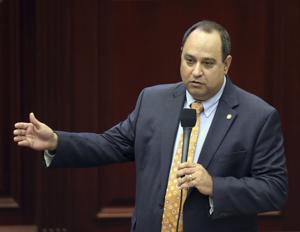Florida Senate sends ‘generational’ pension revamp to House

(The Center Square) – The Florida Senate Thursday approved a hotly-contested “generational” revamp of one of the nation’s largest public worker pension plans into a 401(k) program similar to those offered by private sector employees.
Senate Bill 84, sponsored by Sen. Ray Rodrigues, R-Estero, was adopted in a straight 24-16 party-line vote and dispatched to House. Without a House companion bill, it is uncertain how the bill will be received in the lower chamber.
SB 84 would require all new state government employees, and most participating municipal workers, hired after July 1, 2022, to enroll in a 401(k)-type plan rather than into the Florida Retirement System (FRS).
The FRS is the nation’s fourth-largest public pension plan. It serves about 5.1 million Floridians, including 644,000 active employees and 4.425 million retirees, who work, or worked for state agencies, 177 cities, 151 hospitals, 74 school districts and dozens of special districts.
Rodrigues said the FRS has $200.3 billion in liabilities and $164.3 billion in assets, which amounts to $36 billion in “unfunded liabilities.”
That is only enough money to cover 82 percent of its bills, he said, stating anything below 100 percent means “government has made a promise it cannot keep.”
Rodrigues said the state will pay more than $2 billion this year in interest on FRS’s $36 billion unfunded liability. With compounding interest, he said, the unfunded obligation to $42 billion in three years.
The growth in “unfunded liabilities” within 5,500 state and local government pension plans that serve 21 million public workers nationwide has been drawing scrutiny — and alarm — in state legislatures for at least two decades.
A 2019 U.S. Census Bureau survey estimated public pension funds to be underfunded by as much as $4 trillion.
Public pensions are typically direct-benefit plans based on members’ years of service and average salary over a specified number of years of employment. Many members also receive cost-of-living adjustments.
A 401(k)-style program, or defined-contribution plan, is the dominant private sector offering. Unlike a defined-benefit plan that provides certain payments at specific times, a defined-contribution plans allows employees and employers, if they choose, to contribute and invest funds to save for retirement.
Rodrigues said weaning new employees off the FRS would be a “generational change” necessary to ensure long-term stability for millions of Floridians, including teachers, law enforcement officers and firefighters.
SB 84 completes a transition underway, he said, noting 75 percent of newly-hired public workers the past 2 1/2 years have opted for 401(k) plans over the FRS, he said.
“The majority of the new employees are there. If we want to limit our liability and ensure that we put our plan on the most actuarially sound basis so that we can keep the promises that have been made, then this bill is the step that will do that,” Rodrigues said.
Labor unions and Democrats vigorously opposed SB 84’s committee advance and pushed back Thursday, noting Florida State Board of Administration Chief Investment Officer Ash Williams told the Florida Cabinet the FRS is in good shape.
“He was flat-out asked at the March Cabinet meeting about the unfunded actuarial liability and he flatly rejected the notion that this is a problem,” said Senate Democratic Leader Sen. Gary Farmer, D-Lighthouse Point, noting analysts deem any fund with enough cash to pay 30 percent of liabilities fiscally sound.
SB 84 breaks a “fundamental promise” the state made to public workers, said Sen. Loranne Ausley, D-Tallahassee.
Untrue, Rodrigues said.
“The money they’re paying in was always their money and will always be their money, and will be their money whether this bill passes or fails,” he said.
Disclaimer: This content is distributed by The Center Square

